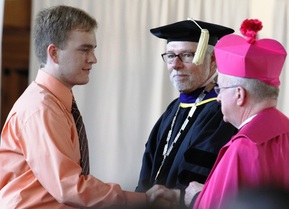 A new student greets College President Dr. Michael
A new student greets College President Dr. Michael McLean and Bishop Kevin Vann at the opening of
the academic year.
One hundred and three freshmen sat facing us. In their demeanor, their dress, and their speech, they seemed truly la crème de la crème of Catholic college students. How blessed are the parents of such children! Yet their parents have entrusted them and their formation to Thomas Aquinas College. If they are Catholics, they have particularly entrusted them to the four priests of the College. Facing such an array of eager, intelligent, and potentially excellent young people, we rejoiced in the privilege of contributing to their intellectual and spiritual development.
What strikes one in a Catholic college is the presence of the priest, and we have four of them at TAC. Students turn to their teachers as mentors, as kind and wise aunts and uncles, but they turn unabashedly to their priests as “fathers.” Priests do not find this “spiritual fatherhood” easy (many feel uncomfortable in being called “father” or wearing their priestly garb), but we do find it compelling. I recall the story of Sir Alec Guinness, as recounted in the London Guardian thirteen years ago: “Guinness's conversion to Roman Catholicism followed an episode in France during the 1954 filming of Father Brown, in which he was GK Chesterton's cheery cleric-cum-detective. Walking back in the dark to the station hotel, and still wearing his cassock, his hand was seized by a small boy, a complete stranger, who called him "Mon père" and trotted along beside him, chatting in French.” I myself just spent two weeks in Haiti, where complete strangers greeted me every day with “Bonjour, mon père!” They believe in our fatherhood.
Like most young men, I wanted to get married and have many children. My plan was to be a forest ranger and live in a Little House in the Big Woods with my family (I had read all the Laura Ingalls Wilder books). Now it’s been 22 years since I vowed celibacy “for the sake of the Kingdom.” As we opened the College year on Monday, that Kingdom again opened up before me. A beautiful garden of young people looked at their priests and tutors with expectation. They will call their priests “father.” Dare I call them “children?” Priests used to address their Sunday congregations as “my dearest sons and daughters;” now priests less confidently say only “my brothers and sisters.” At some point in our lives, we priests must begin calling people “my beloved children” without embarrassment. An “elder” can call another man’s son or daughter “his” child, but the tricky thing is that even a 25-year-old man, once ordained, is an “elder” (presbyter in Greek, meaning “old man). At 51, I feel significantly closer to “elder status” than I did at 29. Still, spiritual fatherhood is such a wonderful grace that I can scarcely believe in it. But believe in it I do. May God supply what I lack, that I may be a good father to these students.
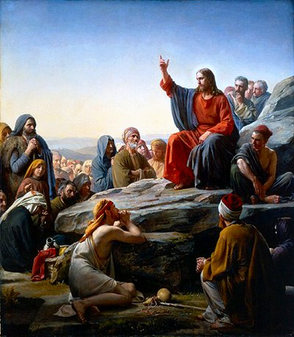
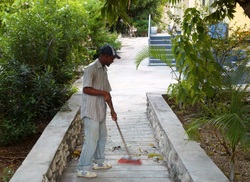
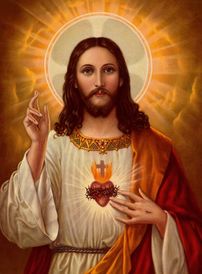
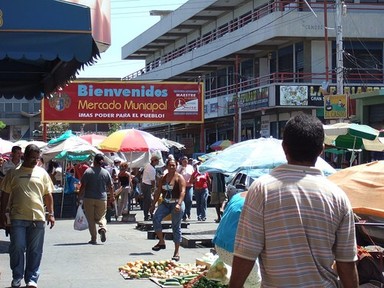
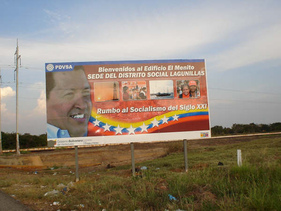
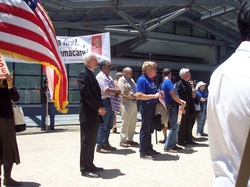


 RSS Feed
RSS Feed